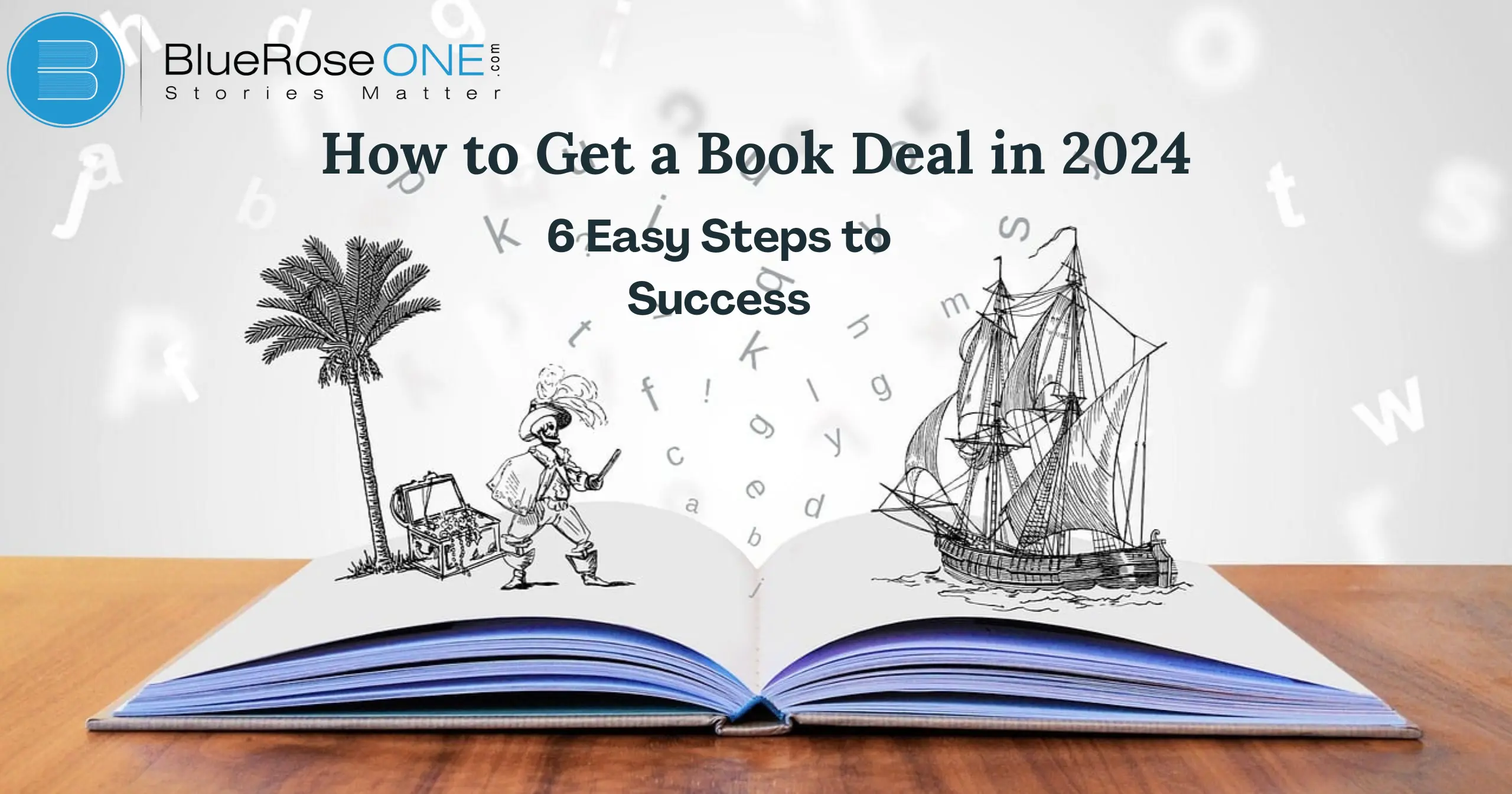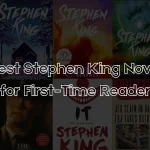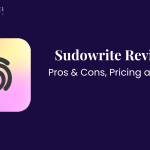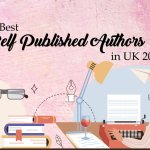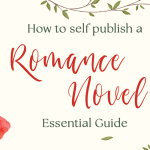Many writers dream of getting a book deal. It is immensely thrilling to think that your work might become the next big thing or that you might see your name on a bookshop shelf.
However, how can you get there in reality? Although the procedure may appear overwhelming, you may effectively traverse it if you have a clear path. In order to help you secure a book deal in 2025, this guide will take you through six simple stages.
Step 1: Perfect Your Manuscript
Writing a Compelling Story
The first step in getting a book deal is polishing your work. Begin by writing an engaging story that draws readers in from the outset. Emphasize compelling storytelling, well-developed characters, and detailed details.
Edit your work carefully, making sure all mistakes and inconsistencies are gone. For a professional finish, think about working with an editor. In addition to keeping readers interested, a well-written manuscript improves your chances of getting published.
Editing and Proofreading
Proofreading and editing are essential stages in making your manuscript flawless. These procedures guarantee that your book is error-free and polished to a high caliber.
Meticulous editing enhances coherence, fluidity, and overall standard, and meticulous proofreading detects any remaining typos or grammatical errors.
A well-written manuscript will help you get a book deal since it will demonstrate to publishers that you are a serious and conscientious writer.
Getting Feedback from Beta Readers
It’s imperative to get beta reader feedback in order to refine your manuscript. These beginning readers can offer priceless insights regarding pacing, character development, and story coherence.
You can raise the caliber of your work and your chances of landing a book deal by taking their criticism into consideration. By allowing beta readers to experience your narrative from several angles, you can increase its attractiveness to agents and publishers.
Step 2: Research the Market
Understanding Your Genre
When trying to land a book deal, knowing your genre is essential. A manuscript can be better suited to the needs of the market by taking into account audience preferences, popular themes, and trends.
Look into publications that are similar and have recently found publishers or agents to find out what kinds of books they are searching for.
Your chances of getting a book deal can be increased by using this understanding to direct your writing and pitching process. To stay competitive, keep up with bestseller lists and industry news.
Analyzing Bestsellers
Finding a book deal requires analyzing blockbusters. Examine best-selling books in your genre to learn what both publishers and readers find appealing. Keep an eye out for market trends, writing styles, and recurring topics.
This knowledge increases your chances of landing a book deal by enabling you to modify your novel to suit consumer expectations. It can also highlight holes in the market where your distinctive story can shine.
Identifying Your Target Audience
Finding your ideal readership is essential to landing a book deal. Knowing your target audience will help you better craft your pitch to publishers.
Investigate potential readers’ hobbies, reading preferences, and demographics first. Think about your age, gender, and preferred genres.
Talking with your audience in forums and on social media might yield valuable information. Knowing your market increases the likelihood that publishers will find your work intriguing and offer you a book deal.
You may also like: What is Typesetting? A Beginner’s Guide to Perfect Page Layout
Step 3: Write a Captivating Query Letter
The Purpose of a Query Letter
In 2025, writing an engaging query letter will be essential to landing a book deal. A query letter pitches your manuscript’s unique selling qualities to literary agents and publishers like a book’s ambassador.
It should contain your writing qualifications, a succinct synopsis that highlights the plot and primary characters of your novel, and a quick introduction to your work.
In the cutthroat publishing industry, this letter should draw readers in and make a lasting impression in order to persuade agencies to request your work for further consideration.
Key Components of a Successful Query Letter
A book deal can be obtained by creating an effective inquiry letter, which requires several important elements. Start with a succinct synopsis of your book’s genre and core idea in the introduction to grab the attention of the agent or publisher.
Your manuscript’s distinctive selling qualities should be clearly stated, with an emphasis on what makes it stand out from the competition. Give a succinct summary that highlights the emotional core of the book and its prospective readership while encapsulating the plot and primary characters.
Finish with a polished finish that demonstrates excitement about the chance to collaborate on publishing and extends an invitation for more discussion.
Examples of Effective Query Letters
Studying examples of successful query letters can be extremely helpful. Look for ones that led to book deals in your genre to understand what works.
Step 4: Find the Right Literary Agent
The Role of a Literary Agent
The fourth step to landing a book deal is selecting the appropriate literary agency. By putting authors in touch with publishers who are seeking fresh material to publish, literary agents represent authors.
On behalf of writers, they negotiate rights and contracts to make sure they obtain the best possible deal. Agents help polish manuscripts to improve their marketability and offer insightful information about the industry.
Selecting a literary agent who is knowledgeable about your aims and genre will greatly increase your chances of landing a big book deal in 2025.
How to Research Agents
In 2025, finding a literary agency to represent you is essential to landing a book deal. Find agencies that specialize in the genre or kind of book you want to write.
To identify agents who are actively looking for new authors, use internet directories and databases such as QueryTracker or AgentQuery. Make sure you carefully review each agent’s submission rules and tailor your query letter to suit their tastes.
Seek out agents who have successfully landed book deals with respectable publishers in relation to your genre. Creating a focused list of possible agents improves your chances of securing the ideal book representation.
Tips for Querying Agents
Discovering the Correct Literary Agent is Essential to Landing a Book Deal. When submitting queries to agents, make sure they are specific and emphasize what makes your work unique.
To improve your chances of finding the perfect fit, look for agents who specialize in your genre or area of interest. Make each query letter distinctive by highlighting your tale and voice and stressing what makes your book appealing.
Strict adherence to submission requirements and patience while waiting for responses are important, as finding the proper agent can significantly increase your chances of getting a book deal in 2025.
Step 5: Prepare a Winning Book Proposal
What is a Book Proposal?
A book proposal is a thorough pitch that you give to publishers or literary agents explaining your book idea. It acts as a road map for the subject matter, potential readership, and unique selling points of your work.
A synopsis of your book, details about your intended readership, a competitive analysis of related works, and your author platform your qualifications and writing reach are usually included.
To improve your chances of landing a book deal, a strong book proposal is essential to persuading publishers that your work is worthwhile.
Essential Elements of a Book Proposal
A fascinating synopsis, an in-depth chapter outline, an engaging author bio, and a marketing strategy are all components of a successful book proposal. Start with a compelling synopsis that emphasizes the distinct perspective of your work.
Describe the structure and flow of each chapter in an outline form. Showcase your qualifications and areas of expertise in your author profile.
Last but not least, a solid marketing strategy shows the potential appeal and accessibility of your book, which is essential for landing a book contract in 2025.
How to Make Your Proposal Stand Out
Make sure your proposal is clear, unique, and marketable in order to stand out and obtain a book deal. Start the reading process with an attention-grabbing synopsis.
Emphasize the distinctive features of your book and include a thorough synopsis. Provide a compelling marketing strategy outlining how you intend to reach your target market.
Finally, to prove that you can produce a book that will find a publisher, highlight your writing experience and past accomplishments.
Step 6: Submit Your Manuscript to Publishers
Traditional Publishing vs. Self-Publishing
You have the option to self-publish or go through established publishing channels while trying to land a book deal. When you submit your work to a publisher for traditional publication, they take care of the marketing, distribution, editing, and design.
Although it can be slow and competitive, it frequently offers greater reputation and reach. You have more control over the process, quicker release, and larger royalties when you self-publish, but you have to handle every part of it, from distribution to marketing. In 2025, either route may result in a lucrative book deal.
How to Submit to Publishers
To secure a book deal, start by researching publishers that align with your manuscript’s genre and style. Follow their submission guidelines precisely, which usually include a query letter, a synopsis, and sample chapters.
Personalize your query letter to show your knowledge of the publisher and why your book fits their catalog. Patience is key, as the process can take time, but persistence increases your chances of landing a book deal.
What to Expect During the Submission Process
A comprehensive and frequently drawn-out process is to be expected when sending your book to publishers. Make sure your manuscript is polished and complies with the publisher’s requirements first. You might have to wait a few weeks or months to hear back after submitting.
Publishers will ask for the entire manuscript if they’re interested and might even offer edits or suggestions. It takes several assessments and discussions to get a book deal, so patience is essential to make sure your work is a good fit for their library.
Conclusion
Landing a book deal is a journey that requires patience, perseverance, and a lot of hard work. By perfecting your manuscript, understanding the market, crafting a compelling query letter, finding the right agent, preparing a standout book proposal, and submitting to publishers, you’re setting yourself up for success. Remember, every rejection is a step closer to acceptance. Keep pushing forward and believe in your story.

